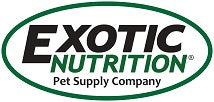When it comes to ensuring the health and well-being of our pet rats, one crucial aspect is their diet. Just like humans, rats should avoid certain foods that could be toxic, unhealthy, or unsafe for them. In this blog post, we will explore common foods that can pose risks to your furry friends and provide guidance on making smarter choices for their nutritional needs.
Toxic Foods:
It's essential to be aware of foods that are toxic to rats and should be strictly avoided. These include chocolate, caffeine, alcohol, avocado, onion, garlic, and citrus fruits. The chemicals present in these foods can be harmful to your rat's digestive system, leading to potential complications or even fatal outcomes. The foods below are poisonous to rats and should completely avoided.
- Avocado skin and pit
- Chocolate
- Citrus fruits (causes kidney damage)
- Mango (causes kidney damage)
- Green potato
- Fluorinated and/or Chlorinated Water (use only filtered water, never tap water)
- Green bananas
- Uncooked/dried beans (contains toxic hemaglutin)
- Blue cheese
- Caffeine
- Dried corn
- Licorice
- Raw sweet potato
- Poppy seeds
- Raw cabbage
- Raw brussel sprouts
- Raw peanuts
- Rhubarb
Unhealthy Foods:
While some foods may not be toxic, their nutritional value may be rather limited or detrimental to your rat's health. Excessive consumption of sugary or fatty foods can lead to weight gain, diabetes, heart problems, and other issues. Avoid feeding your rat processed foods, sugary treats, fried food, or excessive amounts of nuts as they are high in fat content. Unhealthy foods won’t necessarily cause lasting harm to pet rats but should still be avoided because of the negative impact on their health.
- High-fat foods
- Sugary foods
Unsafe Foods:
Certain foods may pose physical risks to your rats due to their size, texture, or difficulty in chewing and swallowing. Hard foods such as raw pasta or large, uncooked vegetables can cause choking hazards. Sticky foods like peanut butter can get stuck in the throat, potentially leading to suffocation. Moreover, pits or seeds from fruits like cherries or apricots should be removed before offering them to your rats, as they can be a choking hazard or contain toxic substances. These foods should be avoided because they can cause harm of injury to the animal due to their attributes.
- Carbonated beverages (rats are unable to burp, so the gas gets trapped)
- Sticky foods (like peanut butter)
- Wild insects
Rat-Safe Alternatives:

To ensure your beloved pet is consuming a balanced and nutritious diet, opt for fresh, rat-friendly foods, as well as specially formulated rat blocks and treats. Exotic Nutrition Rodent Blocks are a great choice as they provide a well-balanced diet with essential nutrients tailored for rats. These blocks contain a mix of grains, seeds, vegetables, and fruits that offer a complete and wholesome meal for your furry friend.
In addition to blocks, you can supplement your rat's diet with treats like Dandelion Delicacy, which provides natural enrichment and variety. Dandelion greens are rich in vitamins and minerals that promote digestive health and immune function in rats. Introducing these treats in moderation can add excitement and nutritional benefits to their diet.
If you're looking to rehydrate your rat or provide a refreshing treat in warmer weather, consider Garden Fresh Re-Hydrate. This product is specially designed to add a variety of healthy fruits & vegetables to your pet’s diet! It can be offered dry as a crunchy treat or add water to make a fresh, juicy snack!
Remember, while incorporating commercially available rat blocks and treats can be beneficial, it's essential to still include fresh fruits and vegetables, lean protein sources, whole grains, and small amounts of dairy products in their diet. Always follow the recommended guidelines in terms of serving sizes and consult with a veterinarian knowledgeable about rat nutrition to ensure you're meeting your pet's specific needs.
Ready to Shop? Shop By Pet or Shop By Category
Got Questions? Browse more free Blogs or Contact Us with any inquiries regarding our products.
Notice: Exotic Nutrition cannot provide specific care guidelines on an individual basis. Please consult a veterinarian or experienced breeder.
Exotic Nutrition is proud to serve hundreds of universities, zoological parks, veterinarians, research centers and other institutions seeking to advance the health and well-being of exotics worldwide. See a full list of institutions using our products here.
Exotic Nutrition has a heart for animals in need. Through regular donations to rescues, rehabilitators, and special fundraiser events, Exotic Nutrition is making a significant impact in the lives of animals. See a full list of our charitable donations here.

Comments (1)
Interesting to hear for the first time
Leave a Comment